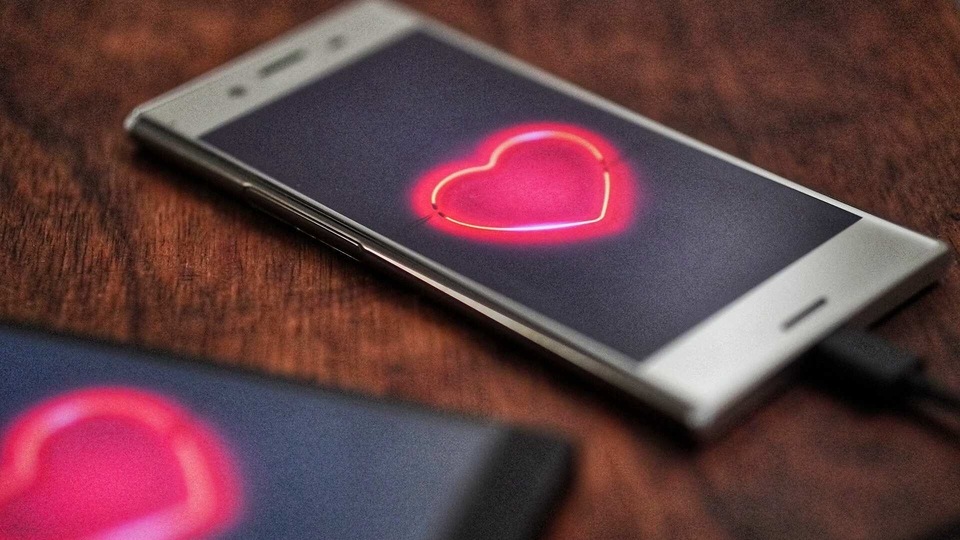Black Lives Matter: Some dating apps keep race filters
Grindr and Scruff are nixing the feature in response to Black Lives Matter protests against police brutality.

Amid a wave of corporate responses to protests against police brutality, gay dating apps are nixing race-based filters in a bid to fight discrimination on their platforms. But the world's largest online dating company is instead defending the controversial filters as a way to empower minorities, setting off a debate about whether or not the feature should exist at all.
Last week Grindr said it will remove its ethnicity filter in the next release of its software to “stand in solidarity with the #BlackLivesMatter movement.” The announcement came a week after George Floyd, a black man, died after a police officer kneeled on his neck for 8 minutes and 46 seconds.
The next day, gay dating app Scruff pledged to remove its ethnic filters to “fight against systemic racism and historic oppression of the Black community,” the company wrote on Twitter. “We commit to continue to make product improvements that address racism and unconscious bias across our apps.”
Also read: Tinder to launch in-app video chats later this year
Dating apps have long allowed users to pay for features to refine matches, including the ability to filter by race. These services, including Grindr, have justified the offering, saying minorities use it to find prospects within their communities. While Grindr is reversing its position as part of a commitment to fight racism, other apps, including online dating behemoth Match Group Inc. defended the continued use of the filter on some of its 40 brands. The world's largest online dating company has the filter on some platforms, like Hinge, but not others, like Tinder.
“In many cases we've been asked to create filters for minorities that would otherwise not find each other,” said Match spokesperson Justine Sacco. On one of Match's dating apps — the company wouldn't specify which — nearly half of East Asian users set ethnic preferences. “It's important to give people the ability to find others that have similar values, cultural upbringings and experiences that can enhance their dating experience,” Sacco said. “And it's critical that technology allows communities the ability to find likeminded individuals, creating safe spaces, free from discrimination.”
Hinge, owned by Match, said in an emailed statement removing the filter would “disempower” minorities on its app. “Users from minority groups are often forced to be surrounded by the majority,” the email read. “If the partner they're looking for doesn't fall into the majority of users they're seeing, their dating app experience is disheartening as they spend more time searching for someone who shares similar values and experiences.”
EHarmony Inc.'s U.K. website has a series “lifestyle dating” options that include: Asian, Bangladeshi, black, Chinese, Christian, European expats, Indian, Muslim, people over the age of 50, over 60s, professionals and single parents. The U.S. version has a service for Hispanic dating, while the Australian site has an “ethnic dating” option. EHarmony did not respond to a request for comment. The Inner Circle, a dating site that targets urban professionals, said that it offers users the ability to sort based on nationality, but not ethnicity.
Also read: Twitch is developing talk shows and dating programs for gamers
Critics, however, say these settings allow people to reinforce racial biases. “For you to say ‘I know what every Asian guy looks like, and I know for a fact that I would not be attracted to any of them,' that comes from a racist place,” Asian-American comedian Joel Kim Booster said in a 2018 video Grindr put out to combat racism on the app.
“You're paying more basically to discriminate,” said Adam Cohen-Aslatei a former managing director at Bumble's gay dating app Chappy. (Bumble doesn't allow users to filter by race.) “In 2020 you should bond over more than what someone looks like in a photo or the color of their skin.” In January, Cohen-Aslatei launched a dating app called S'More where people's pictures slowly unblur after connecting with each other.
Dating apps have been a positive force for breaking down racial barriers in society, said Reuben Thomas, an associate professor of sociology at the University of New Mexico who has studied online dating and couple diversity. Apps tend to produce more interracial couples than when people meet offline in already segregated settings, such as bars, schools or workplaces.
Even so, white users overwhelmingly reject non-white people on dating sites, said Keon West, a researcher in bias and social psychology who teaches at Goldsmiths University of London. “White people are pickier than any other group of people and much likelier to pick their own group,” he said. One study of a popular online dating site found 80% of contacts initiated by white people went to people of their same race, and just 3% went to black users. Black people were 10 times more likely to contact white people than the other way around, the research published in Psychology of Popular Media Culture found.
Getting rid of filters won't eliminate racism, or in-group dating, on Grindr or other dating apps entirely. But it will likely push people in the right direction, said Ann Morning, a sociology professor at New York University who researches racial classifications. “If nothing else, it forces users to take individuals one by one and look at them and not just eliminate them,” she said. “If only we could do that same thing as easily in society more broadly. If only we could take the race filters out of everybody's minds.”
Written by Amy Thomson, Olivia Carville, and Nate Lanxon.
Catch all the Latest Tech News, Mobile News, Laptop News, Gaming news, Wearables News , How To News, also keep up with us on Whatsapp channel,Twitter, Facebook, Google News, and Instagram. For our latest videos, subscribe to our YouTube channel.































